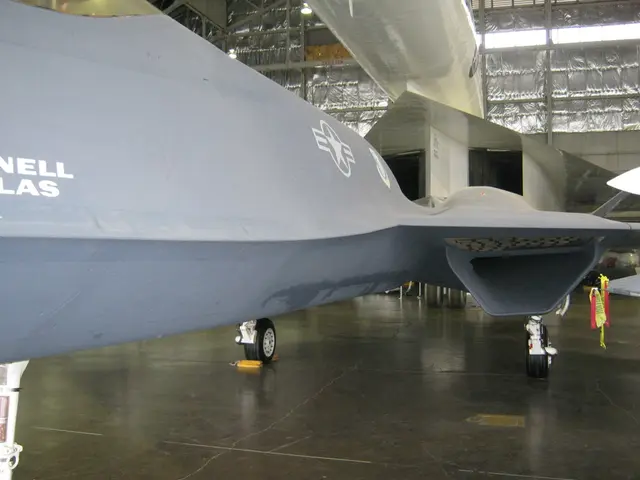Eastern airlines from the Middle East intensify competition on Korea routes by offering affordable fares.
Savory Skies Ahead: The Gastronomic Fusion of Korean Air and Asiana Airlines
Grab your favorite snack and buckle up, folks! The merger between Korean Air and Asiana Airlines is making waves in the skies, bringing crave-worthy changes to the aviation industry. Here's the lowdown on what's cooking.
Emirates Airline's Boeing 777-300ER planes dazzle at Dubai International Airport, but the real action's happening back home. In late 2024, Korean Air sealed the deal, claiming a 63.9% shareholding in Asiana Airlines. The marriage is still in its infancy, but the newlyweds are already working on integrating flight operations, loyalty programs, and corporate structures [1][3].
Speaking of loyalty, Korean Air has some tasty tidbits in store for Asiana passengers. The airline has promised to honor all outstanding Asiana award tickets through 2026, ensuring a smooth transition for flyers. This gives Asiana some breathing room to continue operating as a subsidiary for about two years before being fully absorbed by Korean Air [1][5].
The real taste of the merger? Integrating their frequent flyer programs. Korean Air revealed a mouthwatering prospect of a combined mileage program worth a staggering 35 trillion won. While details on how miles will be swirled together are still under wraps, one thing's for sure—this fusion will create a top-tier airline loyalty program that's bound to leave other airlines green with envy [1].
Korean Air's merger bid received a stamp of approval from the US regulators in December 2024. The airline's CEO is visibly optimistic about catching up with global rivals post-merger, despite challenges like tariffs impacting the business [2]. Asiana's subsidiaries, such as Air Seoul and Air Busan, will eventually align with Korean Air's own low-cost carrier, Jin Air, merging to form a super-sized, budget-friendly airline. A timeline for this subsidiary consolidation hasn't been announced yet [3].
Expect the merger honeymoon to last well into 2025 and beyond, as the integrated airline unifies its brand and operations. With Korean Air's sights set on full integration, it seems like the skies will be one happy family soon [4].
So there you have it, folks! The tasty tale of Korean Air and Asiana Airlines' epic merger. Grab your peanuts, pretend your seatback tray table is a restaurant table, and watch these two powerhouses create flying culinary delights. Bon appétit!
[1] https://www.joongang.co.kr/news/20241221asiana_merger_01.html[2] https://www.joongang.co.kr/news/20241216asiana_merger_02.html[3] https://www.joongang.co.kr/news/20250201asiana_merger_03.html[4] https://www.joongang.co.kr/news/20250601asiana_merger_04.html[5] https://www.joongang.co.kr/news/20260501asiana_merger_05.html
- The aviation industry is experiencing a significant change with the merger of Korean Air and Asiana Airlines, heading towards a potential transformation in the global market.
- The Korean government has been involved in the approval of Korean Air's merger bid with Asiana Airlines, which has the potential to influence the domestic and international airline business.
- The integration of the loyalty programs of Korean Air and Asiana Airlines is expected to bolster their market position in the global frequent flyer industry, creating a formidable alliance in the international business of airline finance.
- The merger's impact on the Korean economy is anticipated as it involves multiple aspects including transportation, finance, and the integration of various subsidiaries, ultimately aiming to deliver a unified, competitive airline connecting East and West.








